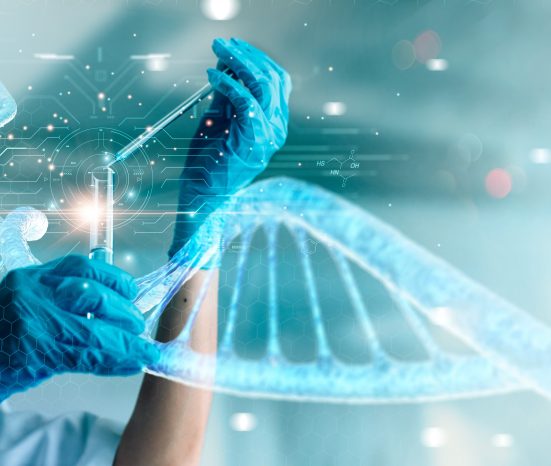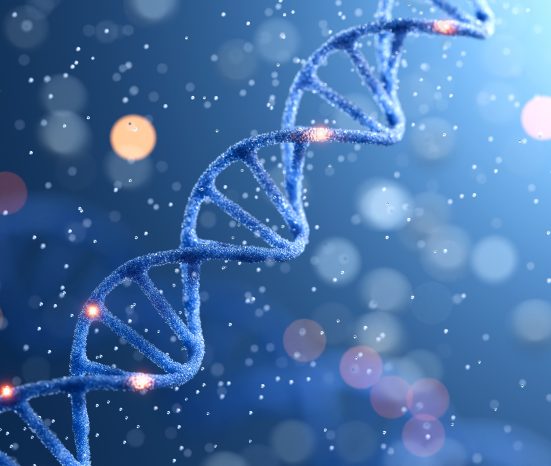Genomics
What is Genomics?
Genomics is the study of an organism’s complete set of genes, known as its genome. This field focuses on understanding the structure, function, evolution, mapping, and editing of genomes. In more detail:
- Genome: A genome encompasses all the genetic material in an organism. It includes not only the genes (which code for proteins) but also the non-coding regions of DNA. Every living thing, from single-celled bacteria to complex animals like humans, has a genome.
- Genes: Within our DNA, specific sections are called genes. Humans have approximately 20,000 coding genes. These genes provide instructions for building proteins, which are essential for various biological processes. Some genes determine physical traits (like eye colour), while others influence the likelihood of developing health conditions (such as cystic fibrosis).
Genomics vs. Genetics
- Genetics: This field focuses on studying individual genes and their roles in inheritance. It examines how specific traits or conditions are passed down from one generation to the next.
- Genomics: A broader term that considers the entire genome. It looks at both coding and non-coding regions, exploring how genes are expressed and interact with each other. Recent advancements in next-generation sequencing technology have made it possible to read an entire genome quickly and affordably.
Sequencing the Genome
- Reading the 3 billion letters in a human genome is a massive task. Next-generation sequencing technology allows it to be done relatively quickly and inexpensively. Sequencing the first human genome took over a decade and cost millions of pounds. Today, it can be done in around 24 hours for less than £1000.
- The data generated during genome sequencing is immense (around 200GB per person). In clinical settings, bioinformaticians, clinical scientists, and geneticists analyze this data alongside a patient’s health information to provide meaningful results.
Genomics in the Aerospace Industry
Genomics plays a crucial role in aerospace research, particularly in understanding how living organisms respond to space environments. For example:
Space Biology Program (NASA)
The Space Biology Program at NASA investigates how plants, microbes, and animals adapt to living in space. Researchers study processes like metabolism, growth, stress response, physiology, and development. They examine how organisms repair cellular damage and protect themselves from infection and disease while exposed to microgravity and space radiation. The program aims to:
- Discover biological responses to space conditions.
- Develop physiological models for space biology.
- Identify underlying mechanisms governing biological processes in space.
- Promote open science through the GeneLab Data System and Life Sciences Data Archive.
- Develop cutting-edge biological technologies for spaceflight research.
- Support human health in space by understanding mechanisms.
Notably, discoveries made in space can have implications for life on Earth, such as drug development, tissue regeneration, and crop yield enhancement.
Animal Biology in Space
- Life in space significantly impacts biology. Terrestrial organisms are not designed for space conditions.
- The Space Biology Program focuses on understanding how animals adapt to spaceflight and altered gravity.
- Animals aboard the International Space Station (ISS) experience rapid sunrises and sunsets due to their high orbital speed.
- Researchers study basic mechanisms that allow animals to adapt to these extreme conditions.
Genetic Algorithms in Aerospace Design
- While not directly related to genomics, genetic algorithms are used in aerospace design.
- These algorithms mimic natural selection and evolution to optimize complex problems, such as aircraft design, trajectory planning, and satellite deployment.
- By iteratively evolving solutions, genetic algorithms find optimal designs, considering various parameters and constraints.
Deep Space Radiation Genomics (DSRG):
- The DSRG project, part of NASA’s Artemis I mission, investigates the effects of deep space radiation on living organisms.
- Researchers analyze genomic changes caused by radiation exposure during extended space missions.
- Understanding these effects is crucial for protecting astronauts during future lunar and Mars missions.
In summary, genomics and related research contribute to safer and more effective space exploration, as well as advancements in medicine and agriculture on Earth.
Evolution of Genomics

The field of genomics has undergone significant evolution since its inception, marked by transformative technological advancements. Early efforts focused on mapping and sequencing individual genomes, such as the Human Genome Project, which provided foundational data for genetic research. Over time, innovations in high-throughput sequencing and bioinformatics have enabled comprehensive genome-wide studies at unprecedented scales. Today, genomics encompasses diverse applications ranging from personalized medicine and agriculture to evolutionary biology, continually reshaping our understanding of genetics and its implications across disciplines.
Aerospace & Genomics in Future
The intersection of aerospace and genomics holds promising implications for the future of both fields. Genomic research could revolutionize aerospace medicine by enabling personalized health assessments and treatments tailored to individual astronauts’ genetic profiles, enhancing resilience during extended space missions. Furthermore, advancements in genomics may lead to bioengineering breakthroughs for creating sustainable food sources and materials crucial for space exploration and colonization efforts. Collaborative efforts between aerospace engineers and geneticists are expected to drive innovation, making space travel safer, more efficient, and sustainable in the decades to come.

Frequently Asked Questions
Common questions and answers pertaining to genomics, especially in regards to aviation.
What role does genomics play in aviation?
Genomics can potentially impact aviation by enhancing aerospace medicine through personalized health assessments, understanding genetic factors influencing pilot performance, and addressing health risks associated with prolonged space missions.
How can genomics improve pilot health and safety?
Genomic research may identify genetic predispositions to conditions relevant to aviation, such as cardiovascular health and susceptibility to radiation, helping to tailor preventive measures and personalized treatments.
What are the ethical considerations of using genomics in aviation?
Ethical concerns may arise regarding genetic testing, privacy, and discrimination based on genetic information, particularly in the context of pilot selection and employment.
Could genomics contribute to the development of bioengineered materials for aerospace applications?
Yes, genomics research may lead to advances in bioengineering materials that are lightweight, durable, and sustainable, potentially revolutionizing aircraft design and manufacturing.
How might genomics research impact aviation sustainability?
Genomics could play a role in developing biofuels from genetically engineered organisms, reducing aviation’s environmental footprint, and promoting sustainable practices in the aerospace industry.
Video Explanation
The video below will provide more information as to how this technology works
Example Industry User

Illumina is a leader in genomics, providing advanced sequencing technologies and solutions that enable comprehensive analysis of genetic information. By developing cutting-edge sequencing platforms, Illumina facilitates research in areas such as disease diagnosis, personalized medicine, and genetic research. Their innovations in genomics allow scientists to decode DNA and RNA with high accuracy and speed, driving advancements in healthcare and life sciences. This relationship highlights Illumina’s pivotal role in advancing the field of genomics and transforming our understanding of genetics.
Further Resources
Below are some external links to further information on this technology.



